2024 MACP Annual Report
The Power of Stories
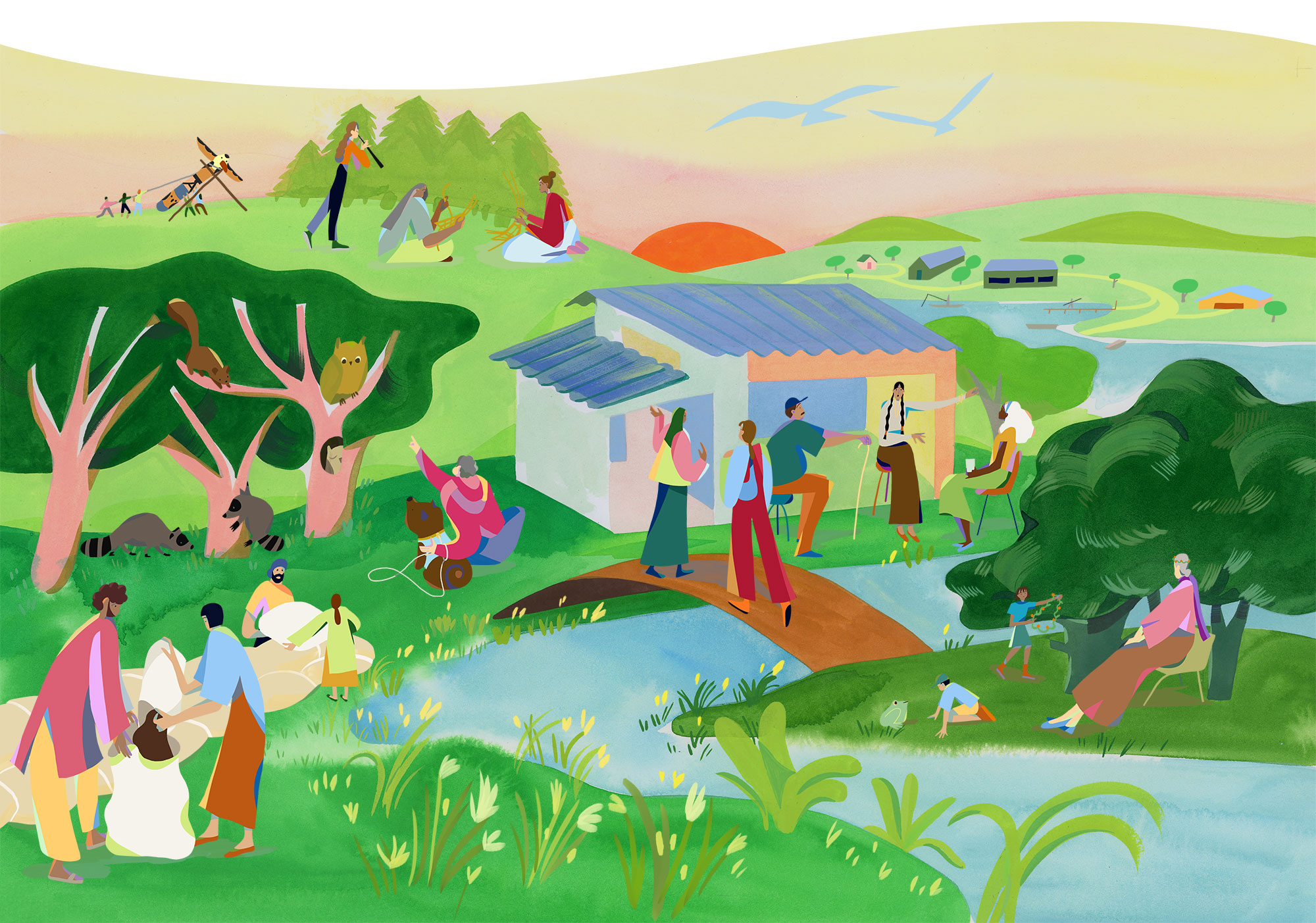
Letter from Our President
In reflecting on 2024, I first want to acknowledge the realities of 2025, as many nonprofits, including our grantees at Margaret A. Cargill Philanthropies (MACP) and the critical communities and organizations they support, are facing new and complex challenges, including reductions in public funding, more frequent natural disasters, and a lack of connection and access to services.
Despite these obstacles, MACP’s grantees persevere in their work, and they continue to make a difference. I’m often humbled and inspired by their stories, which provide insights into what the work looks like at a community level and demonstrate why that work matters for individuals and families. For example, careful listening and authentic collaboration have improved care during pregnancy for women in the Western Highlands of Guatemala, while networks of women farmers across rural Minnesota care for the land and each other in connected networks, and teacher education students in Montana are spending time in rural communities in programs focused on reducing the state’s current teacher shortage.
We’re pleased to highlight these and other compelling stories in our 2024 annual report.
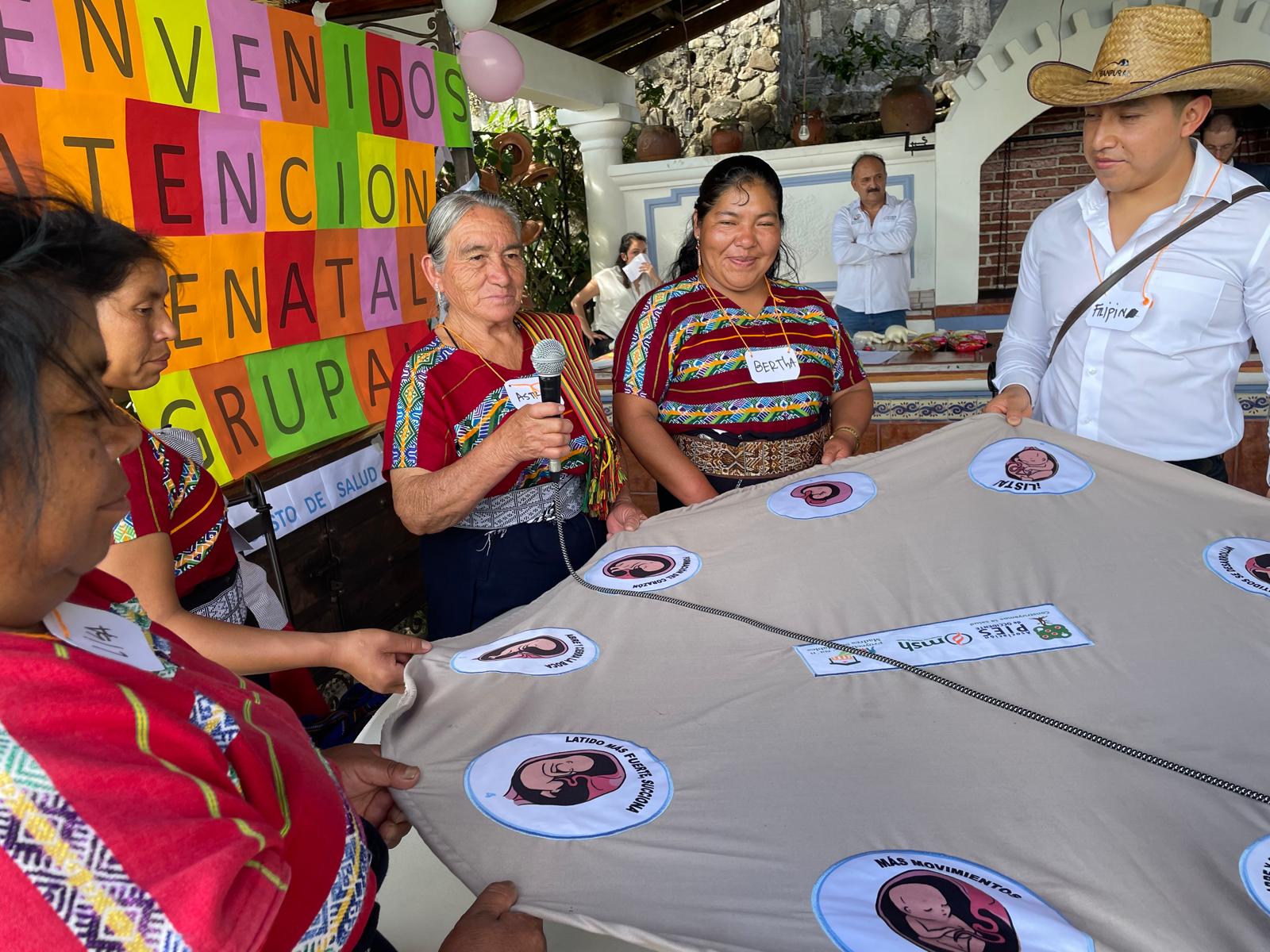
Hearing stories from community can be meaningful, but I find even deeper understanding of our grantees’ work when we are able to see it in person.
Read More
In 2024, I was fortunate to travel with MACP board and program committee members and some of our program staff to Guatemala.
We witnessed the expertise of the comadronas, who serve the vital role of midwife in Guatemalan Indigenous communities. Our grantees, Maya Health Alliance and Management Sciences for Health, work within this community model to provide culturally relevant, respectful, and high-quality health services during pregnancy. For me, it was a meaningful example of organizations that look closely at what was already in place, listen thoughtfully, and work with community members to determine the support that would be most meaningful.
Also on that trip, I saw first-hand what our grantees at the American Red Cross have achieved by focusing on schoolchildren as holders of important disaster preparedness knowledge. These children have been instructed in how to facilitate meeting plans for their families as well as how to conduct basic first aid when needed. It’s an effective strategy for spreading important information to a community with limited access to technology, but that has the incredibly valuable resource of capable, engaged schoolchildren.
As I look back not just on 2024, but also on nearly a decade of grantmaking at our current scale, our values ground us. We value the strength of our relationships, and we are committed to being a steady source of support in uncertain times. This foundation supports and enables powerful stories of lasting impact.
As you explore our 2024 Annual Report, I hope you find inspiration in these stories. Together, we will continue our shared work to make a difference.
With gratitude,
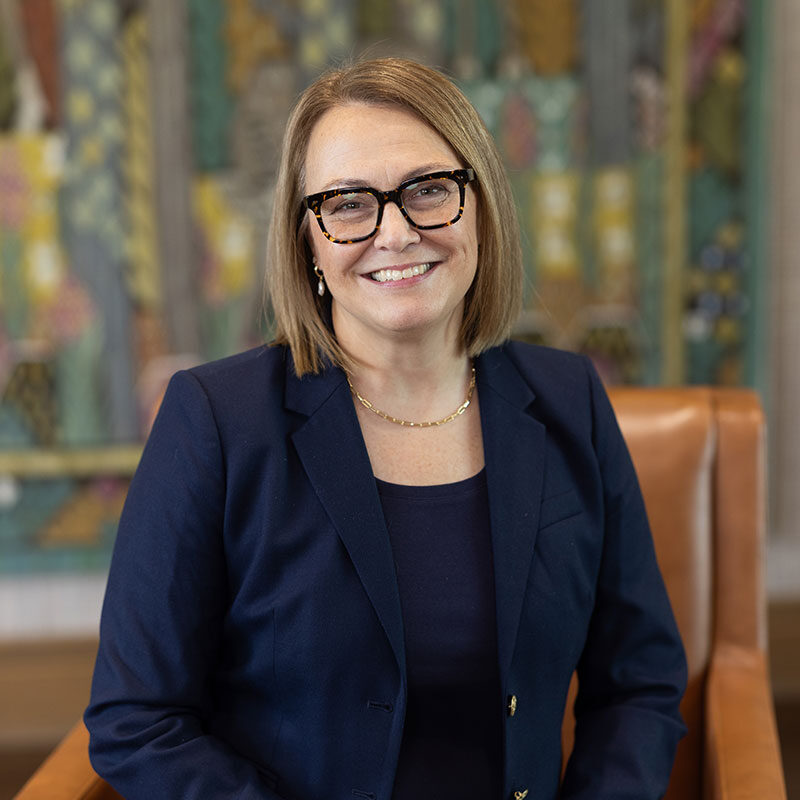
Heather Johnson Kukla
President
In 2024, the Center for Effective Philanthropy (CEP) perception conducted MACP’s third Grantee Perception Report. The reports showed noted improvement in more than 15 survey measures. Read More
Grantees shared that they value MACP as an important, long-term funder with a significant impact on their organizations. Strong relationships, clear communication, support beyond the grant, and a commitment to diversity, equity, inclusion, and justice were highlighted as strengths of our organization. Grantees acknowledged and appreciated MACP’s efforts to streamline our grantmaking, noting improvements in transparency, flexibility, and administrative burden. At the same time, there were requests for additional simplification in our processes and greater funding flexibility. We heard and appreciated that feedback, and we’re committed to continuing to learn and improve.
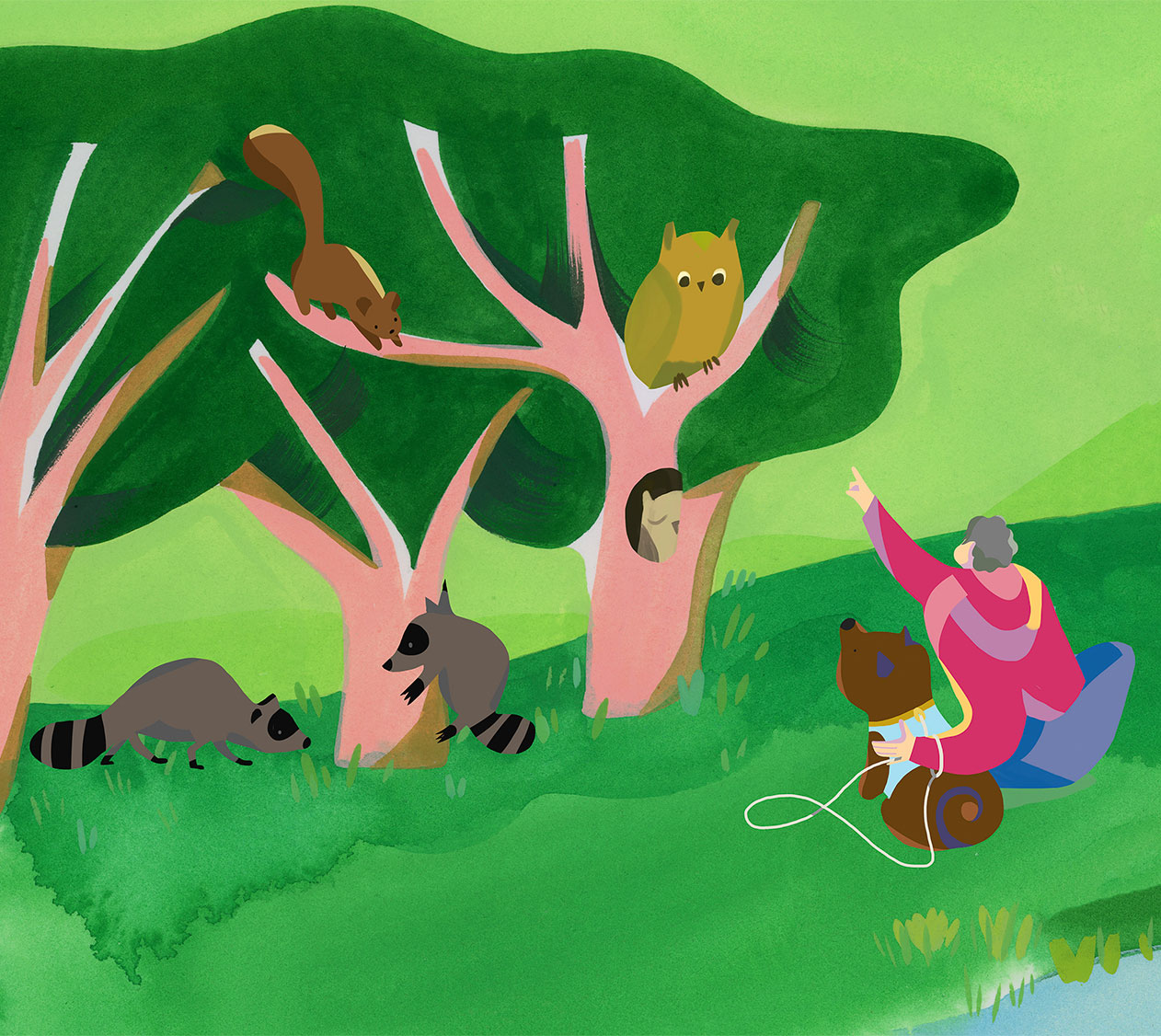
Animal Welfare
We focus on the wellbeing of domestic animals and injured wild animals, and ways to increase empathy toward animals among children and adults.
Our funding prioritizes the care of companion animals and strengthening multigenerational human empathy towards all animals. We also focus on the care of injured or orphaned wild animals to improve their odds of returning to the wild.
Our staff completed an impact analysis in 2024, which confirmed the positive impact our grantees are having to enhance the health and wellbeing of animals in shelters and in communities, while preserving the human-animal bond. We’re also working alongside these organizations to examine barriers to veterinary care, including a focus on Native American and rural communities. Our grantees are working to expand access to veterinary care in various ways, including through updated training to help veterinarians better engage with clients in lower income communities.
Recent evaluation efforts have also demonstrated that our grantee, The Raptor Center, has positively impacted career paths for wildlife rehabilitators in their network. Their work has contributed to increased professional development in the wildlife rehabilitation sector, an engaged and supportive community of rehabilitators, and animal-centric care protocols in use.
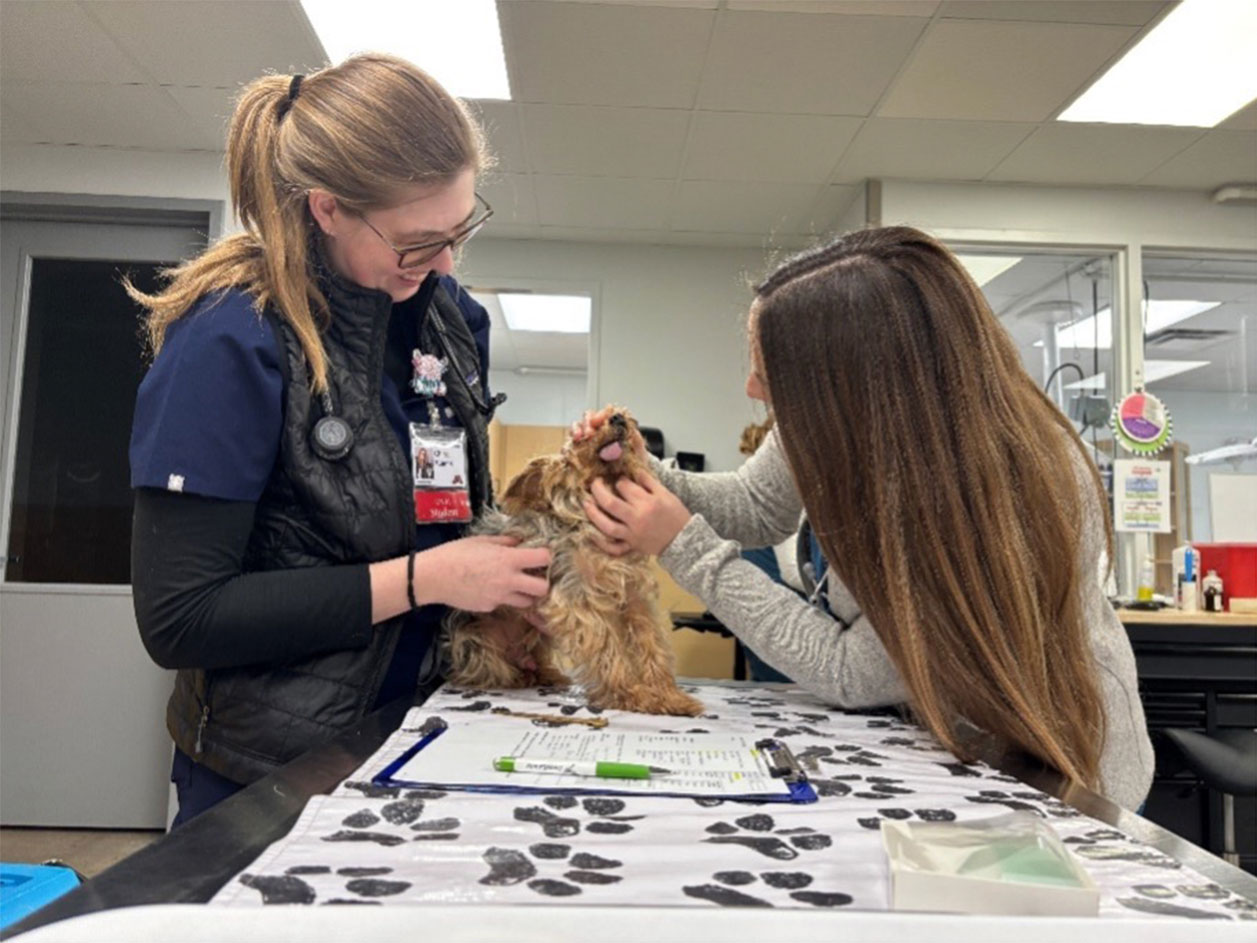
The University of Minnesota College of Veterinary Medicine is training all veterinary students on the spectrum of care, an approach which offers a range of treatment options to best meet the needs and realities of both the animal and its caregiver. Photo provided by The University of Minnesota College of Veterinary Medicine
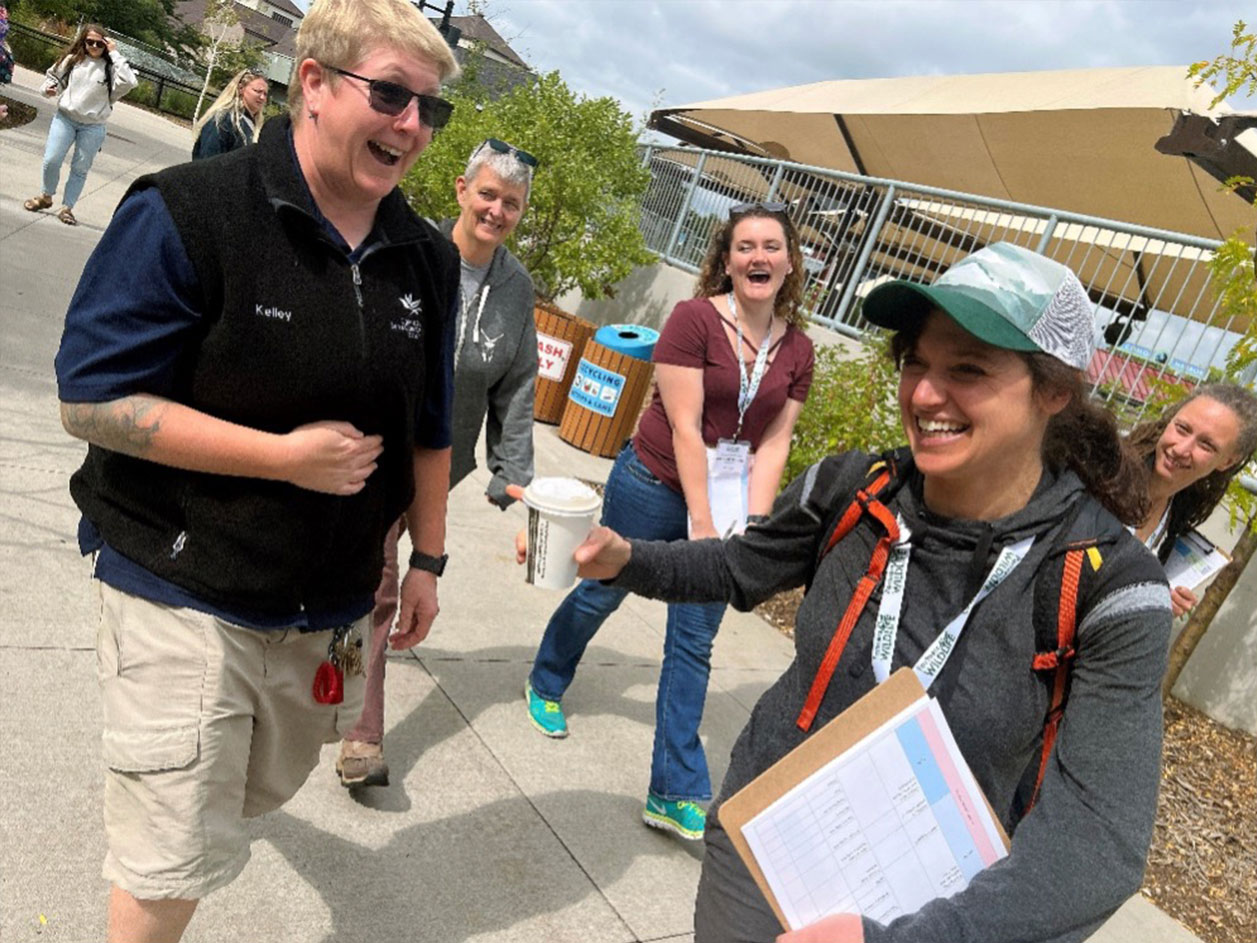
The Raptor Center offers a fellowship through its Partners For Wildlife program, which is open to wildlife rehabilitators and veterinarians. Pictured above, fellows attended a kick-off event at Como Zoo in St. Paul, Minnesota. Photo provided by The Raptor Center
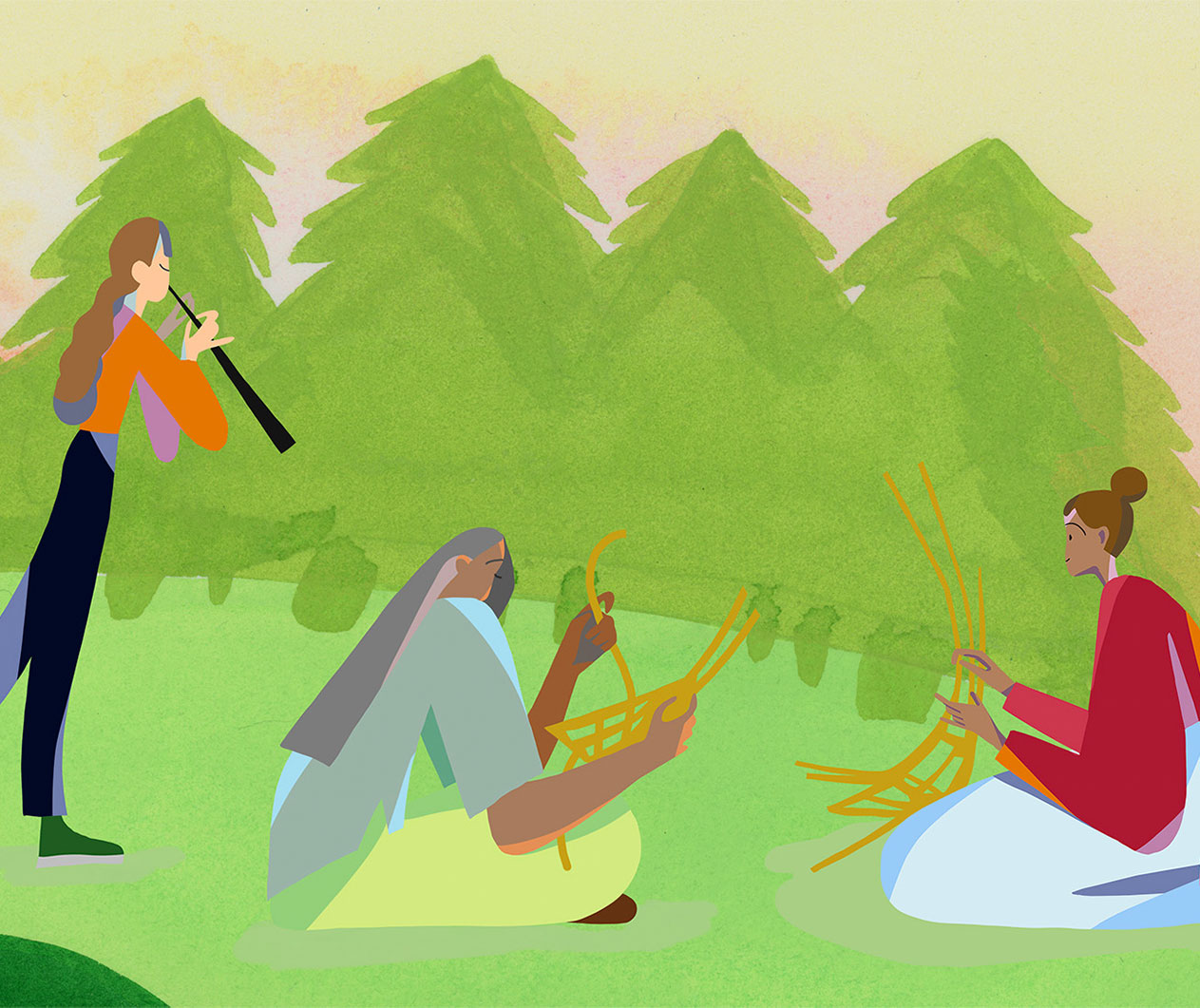
Arts & Cultures
We help support folk arts, Native American art, music, tactile art, and artistically significant crafts that foster human creativity.
Our focus in native and folk arts and cultures supports the intergenerational transmission of artistic skill and cultural knowledge. We fund grantees in particular regions of interest to help advance and sustain intergenerational transmission at a community level. MACP also supports greater access to music education and opportunities for youth to develop skills in music, to enhance their personal growth, and to expose them to their own and other cultures.
In Arts & Cultures, our team delved deep into evaluation with the completion of two impact reports, demonstrating that Native arts and folk arts and cultures programming is essential to sustaining cultural communities that thrive across generations. This work informs our approaches and underscores the importance of intergenerational transmission of arts and cultures.
The year 2024 also held multiple opportunities for the team to connect with artists and grantees; visiting Santa Fe Indian Market in New Mexico; convening Folk Arts and Cultures grantees at American Swedish Institute; a learning trip with LA Philharmonic during their YOLA National Festival. We see how the work of our grantees provides spaces for artists, apprentices, folklorists, and bearers of cultural practice as central to greater depth in relationship, cultural community connections, and belonging.
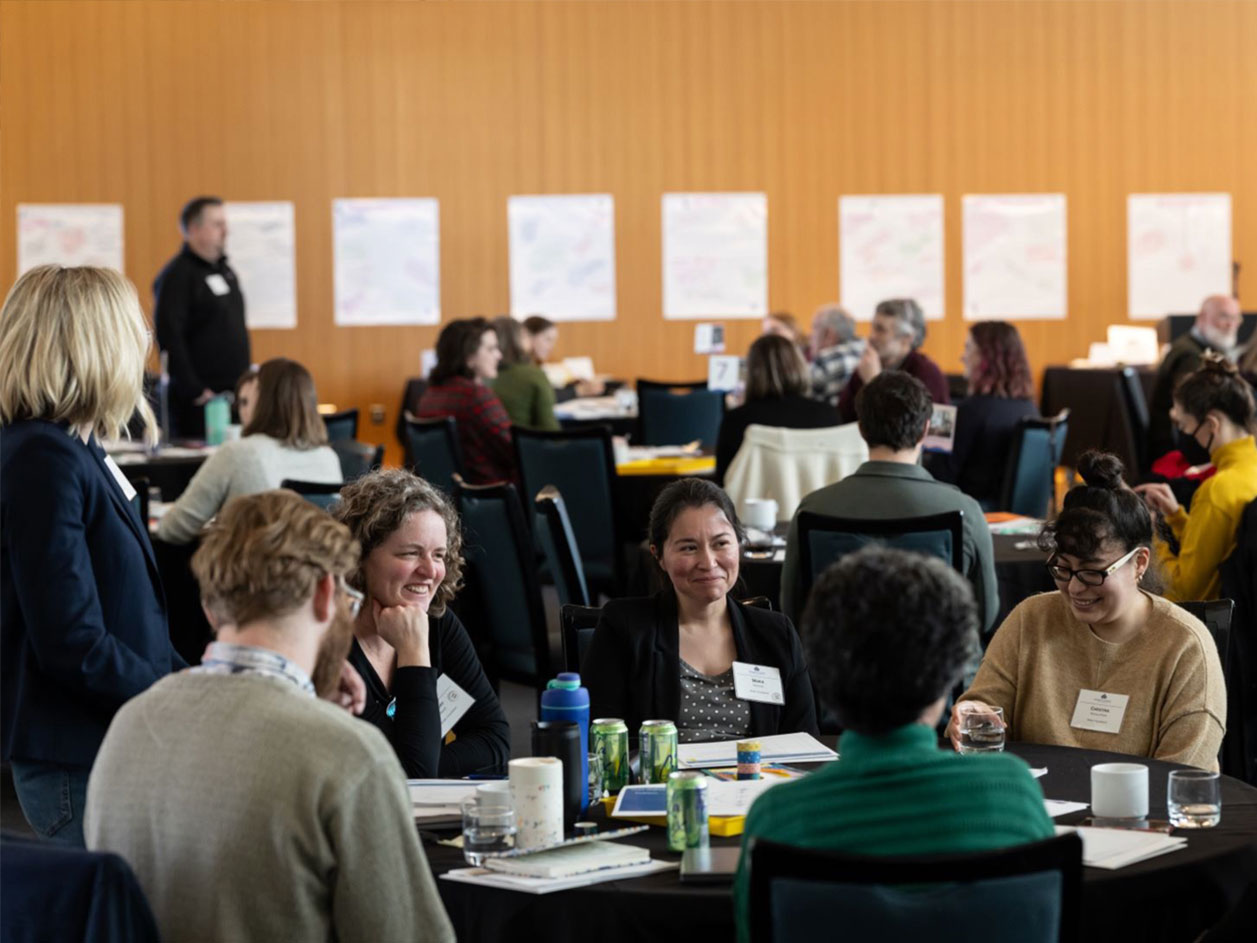
Against the backdrop of American Swedish Institute, grantees in the Folk Arts & Cultures program gathered at their spring 2024 convening in Minneapolis, MN. Photo by Rebecca Slater.
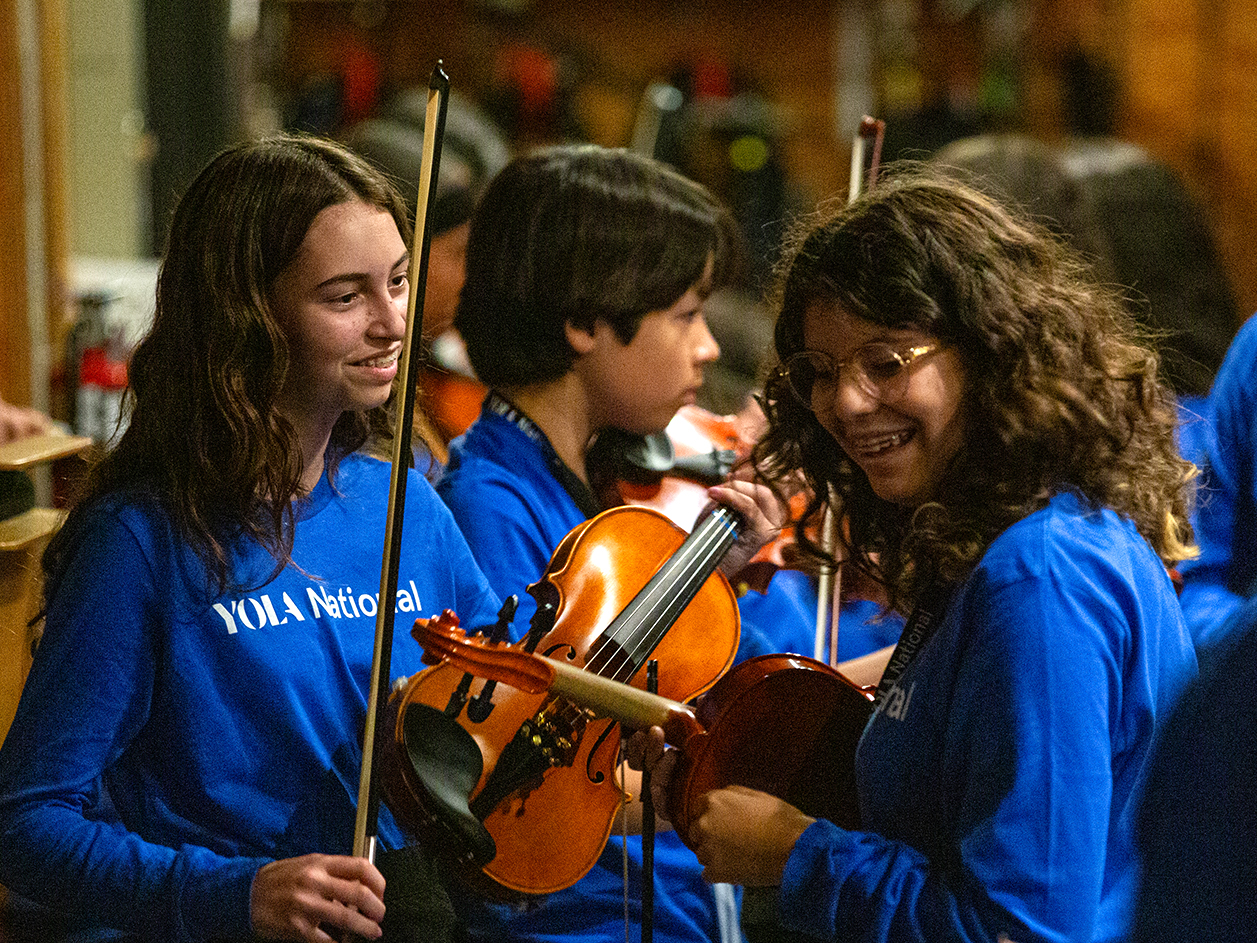
Students at the LA Phil’s YOLA National Festival in summer 2024. LA Phil / Paul Cressey Photography
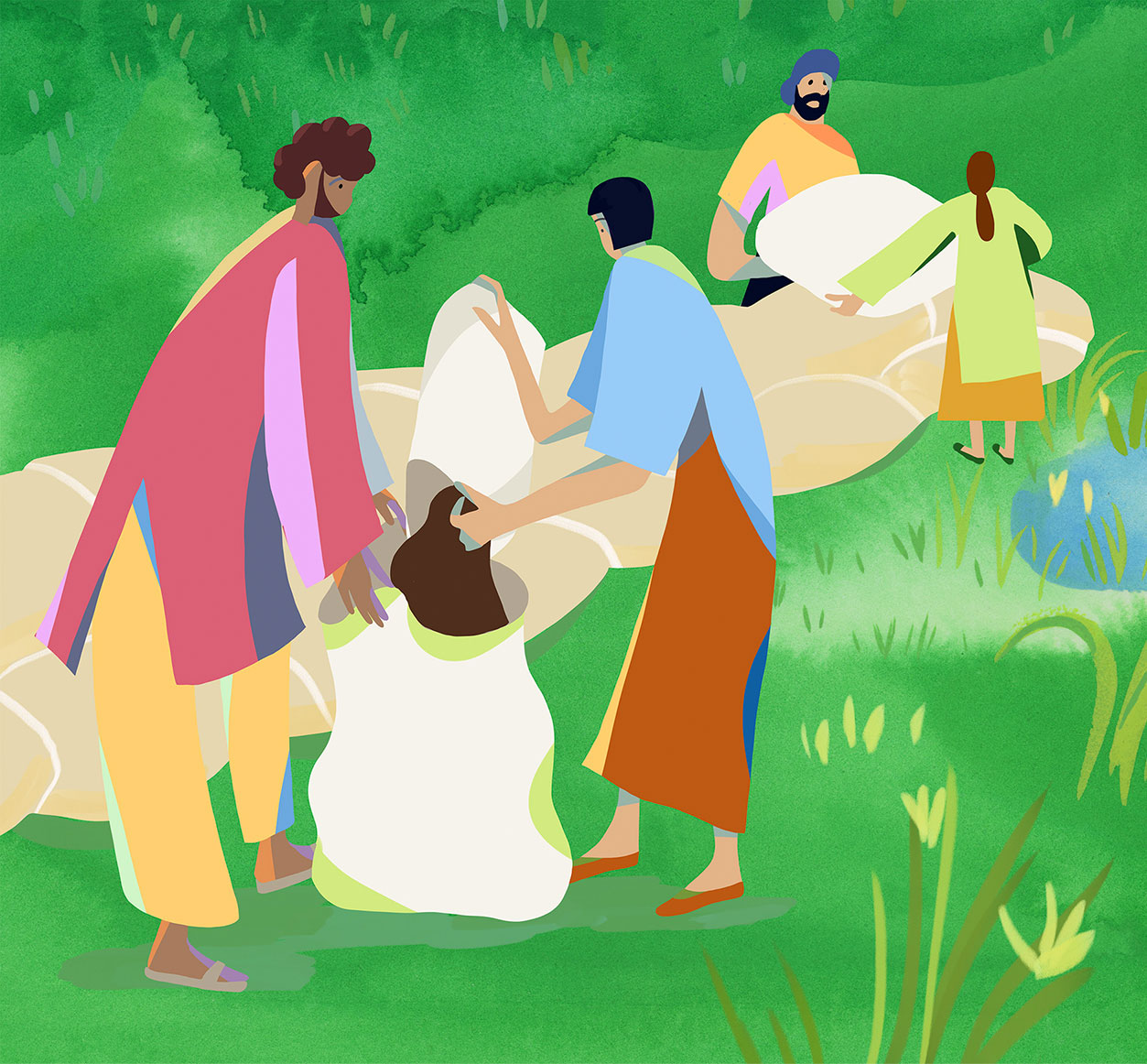
Disaster Relief & Recovery
We support work in natural disaster preparedness, relief, and recovery with emphasis on communities prone to low-attention disasters.
Our domestic funding seeks to reduce the impact of disasters by strengthening the capacity of nonprofit organizations active in disasters, while our international work focuses on strengthening the capacity of local communities.
In recent months, we’ve focused on supporting our grantees as they navigate a changed and uncertain funding landscape. Disaster-related work is by definition unpredictable, logistically challenging, and frequently traumatic. With our emphasis on low-attention disasters, we fund grantees who are responding to natural disasters in rural and remote regions around the world, helping to reduce the impact on communities, households and individuals. We are proud to support their efforts to help communities recover from and prepare for natural disasters.
This approach is particularly important as climate change continues to increase the frequency, unpredictability, and intensity of disasters. With that in mind, members of our staff and board traveled to a region known as the “dry corridor” of Guatemala. There, they saw firsthand how the grantees we fund support communities exposed to prolonged drought along with intense episodes of rainfall.
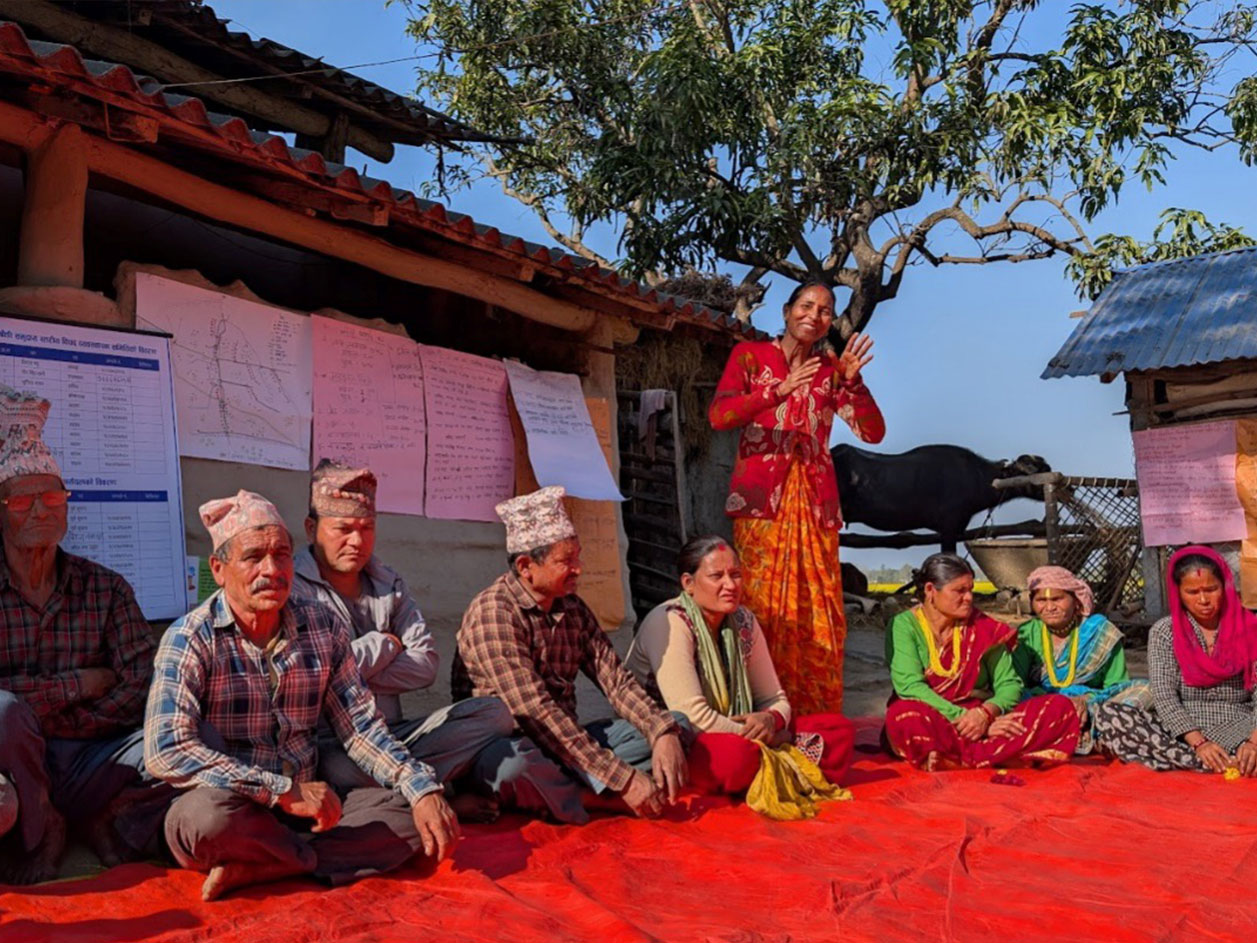
Members of a community disaster committee gather in Gaudi in Beldandi, Nepal. President of the committee, Bimala Devi Bhatta, presents to the group.
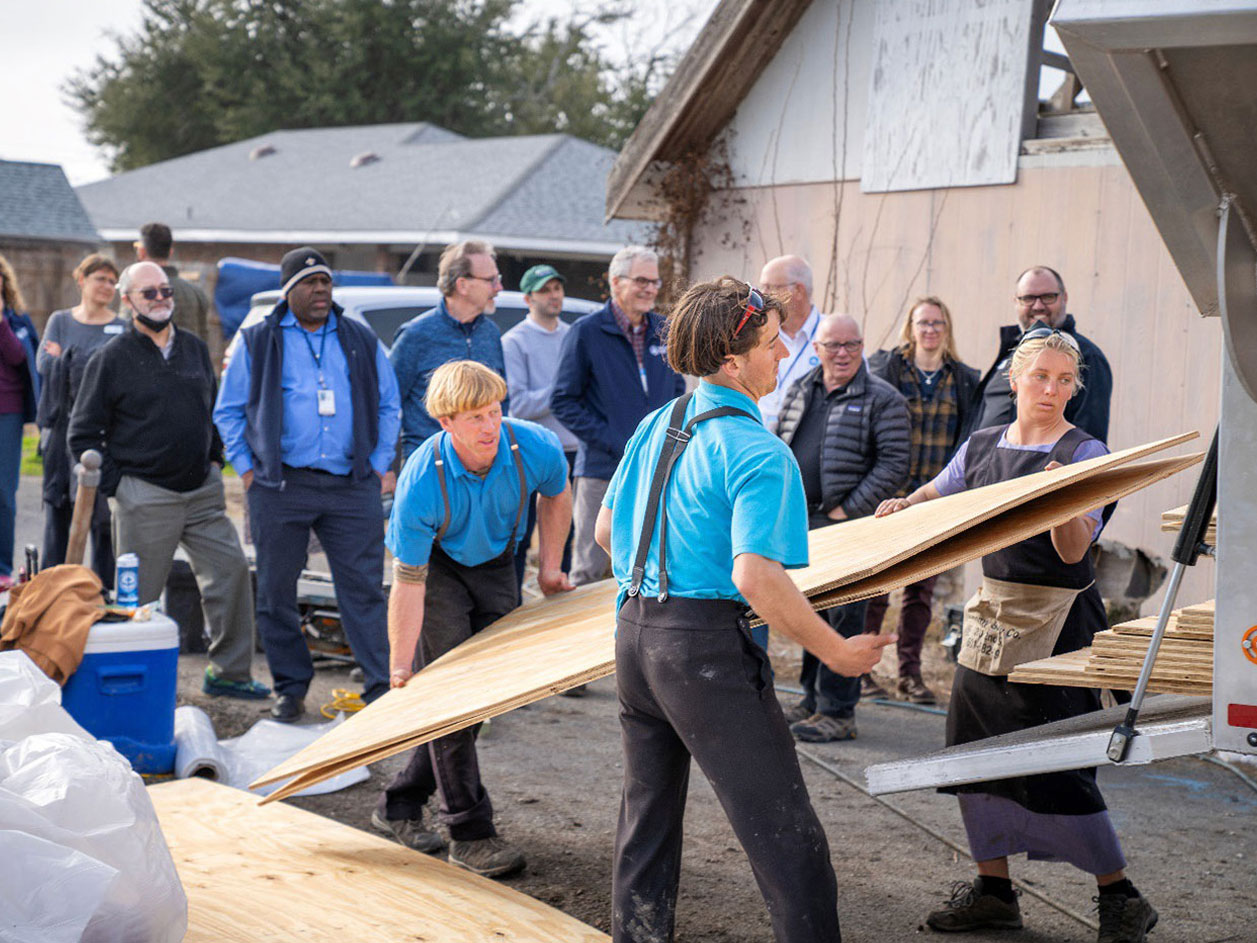
Volunteers with Mennonite Disaster Service work to rebuild homes destroyed by storms using innovative resilient building practices. Photo by Paul Hunt, Mennonite Disaster Service
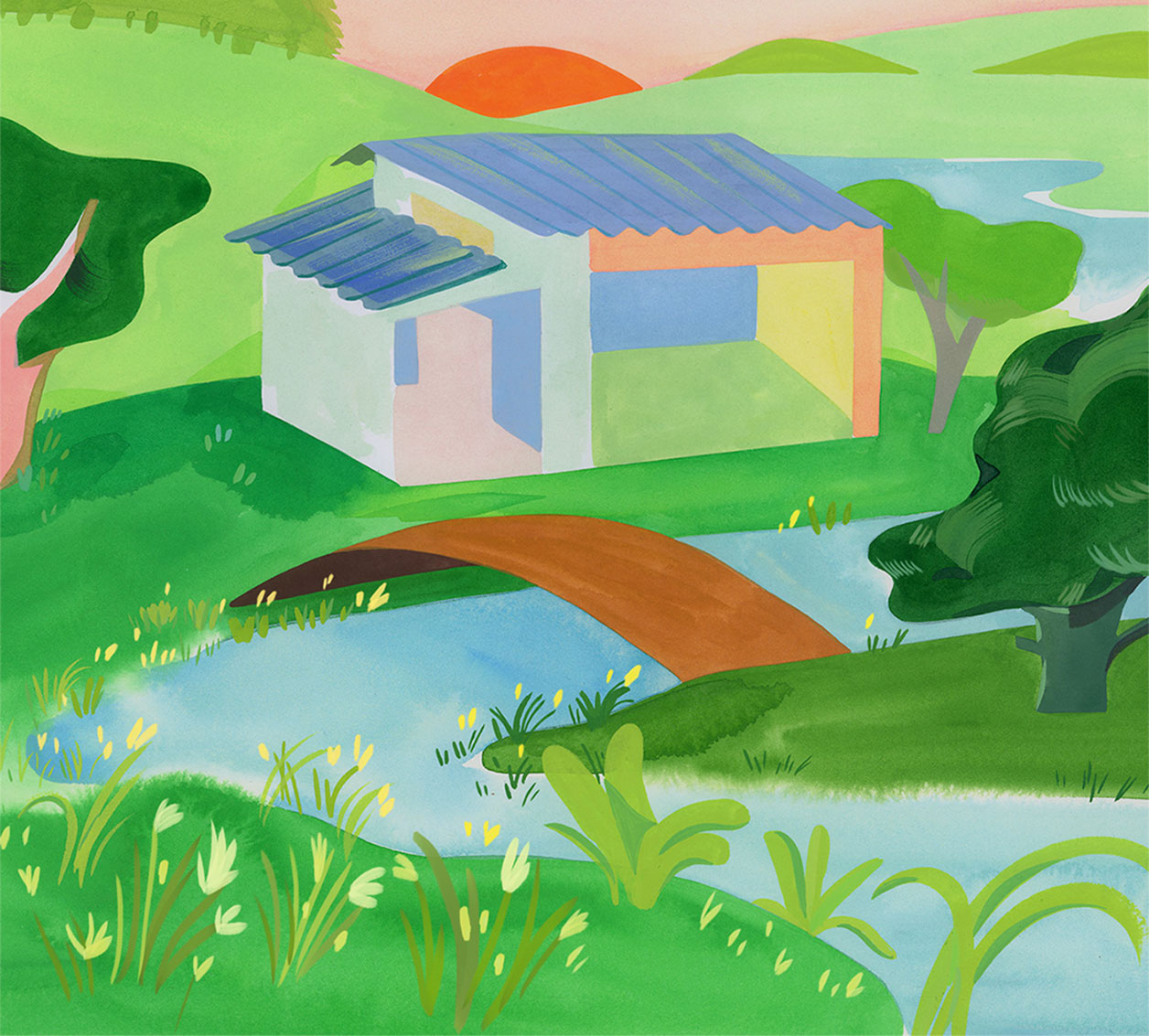
Environment
We support the conservation of natural resources and protection of natural habitats.
Forest, freshwater, marine, and grassland ecosystems are vital to the many peoples who depend on them. We support community-based solutions that help address ecosystem degradation and improve human wellbeing at scale.
Our staff continue to learn from and with our grantees as they shift their conservation work from being community-based to being community-led. Efforts led by communities, rather than outside partners, honor local self-determination and ensure inclusive participation. This important shift in the larger conservation sector is happening at the same time communities are finding ways to adapt to the harsh impacts of climate change.
As MACP looks back on more than ten years of funding through our Environment programs, we are eager to understand the impact of this work, as well as understand how we can contribute to sustainable change. Our team is working to better support community-led efforts, including those that respond to the realities of climate change. These reflections will inform our path ahead for the next decade to come.
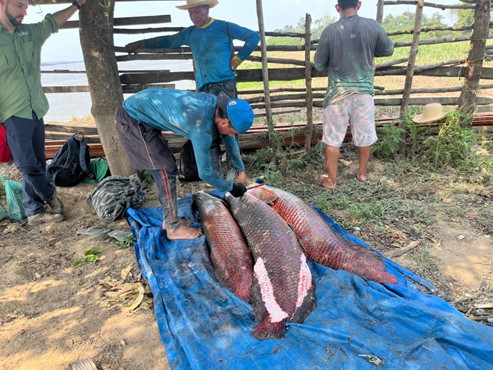
Community members in the Tapajos region of Brazil process pirarucu, a massive fish species native to the Amazon River basin. The Nature Conservancy is supporting local organizations in this region to improve watershed management, including sustainable harvesting and improved commercialization of the pirarucu.
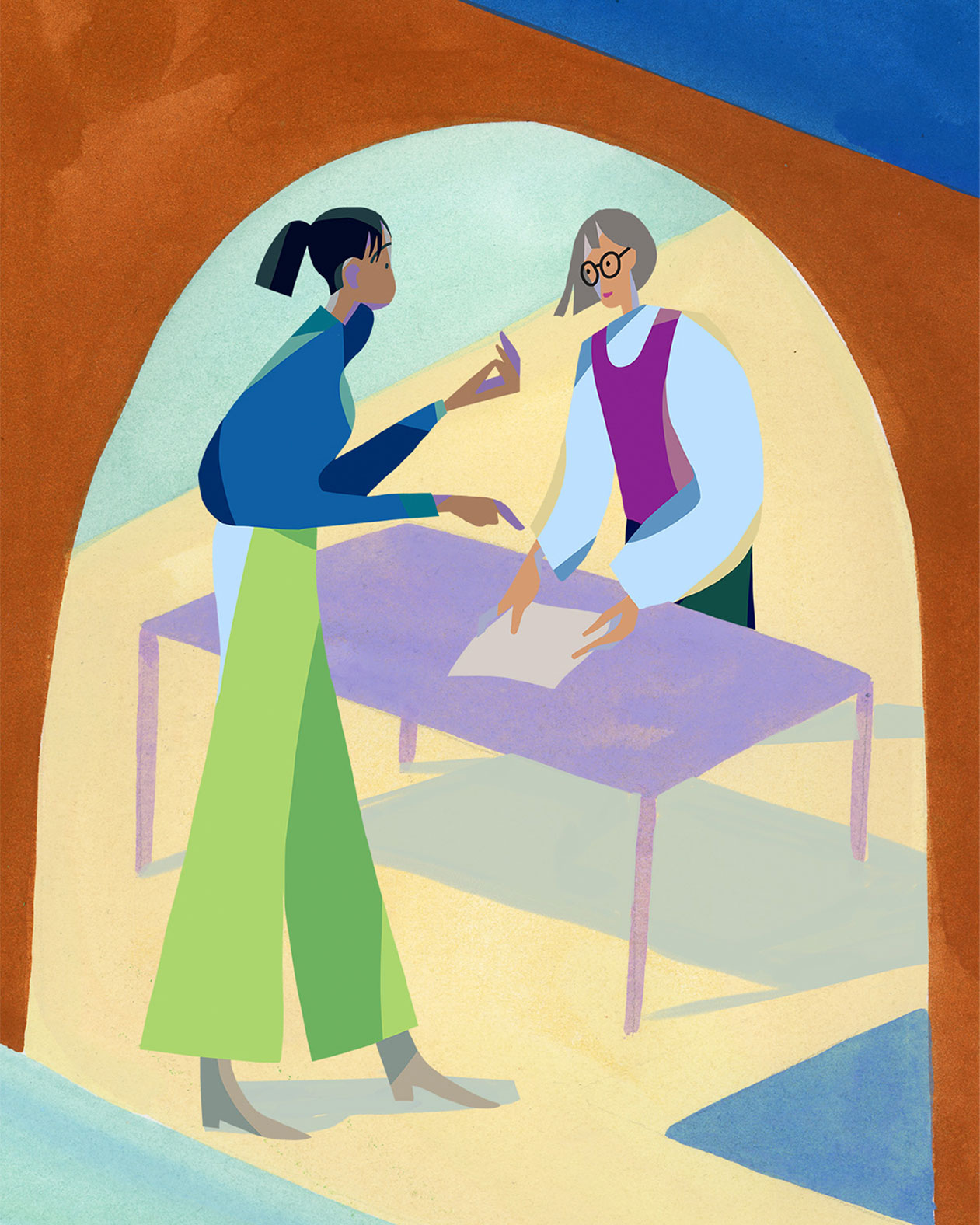
Legacy & Opportunity
We provide funding for opportunities aligned with our strategic priorities and support for specific geographies of importance to Margaret Cargill, including the Upper Midwest and Southern California.
Throughout her life, Margaret Cargill had enduring connections to both Minnesota and Southern California. Our Legacy Grantmaking and Local Initiatives programs honor those connections with community-focused funding.
We support organizations in Southern California that were important to our founder, Margaret Cargill. Margaret spent most of her adult life in the San Diego area and started her first formal philanthropic giving in this community, designating eight area organizations for future support.
In 2024, our staff worked with these long-term grantees on a collaborative goal setting process. This involved homing in on common goals between MACP and each of these Southern California nonprofits, laying a clear roadmap for shared work in 2024 and beyond.
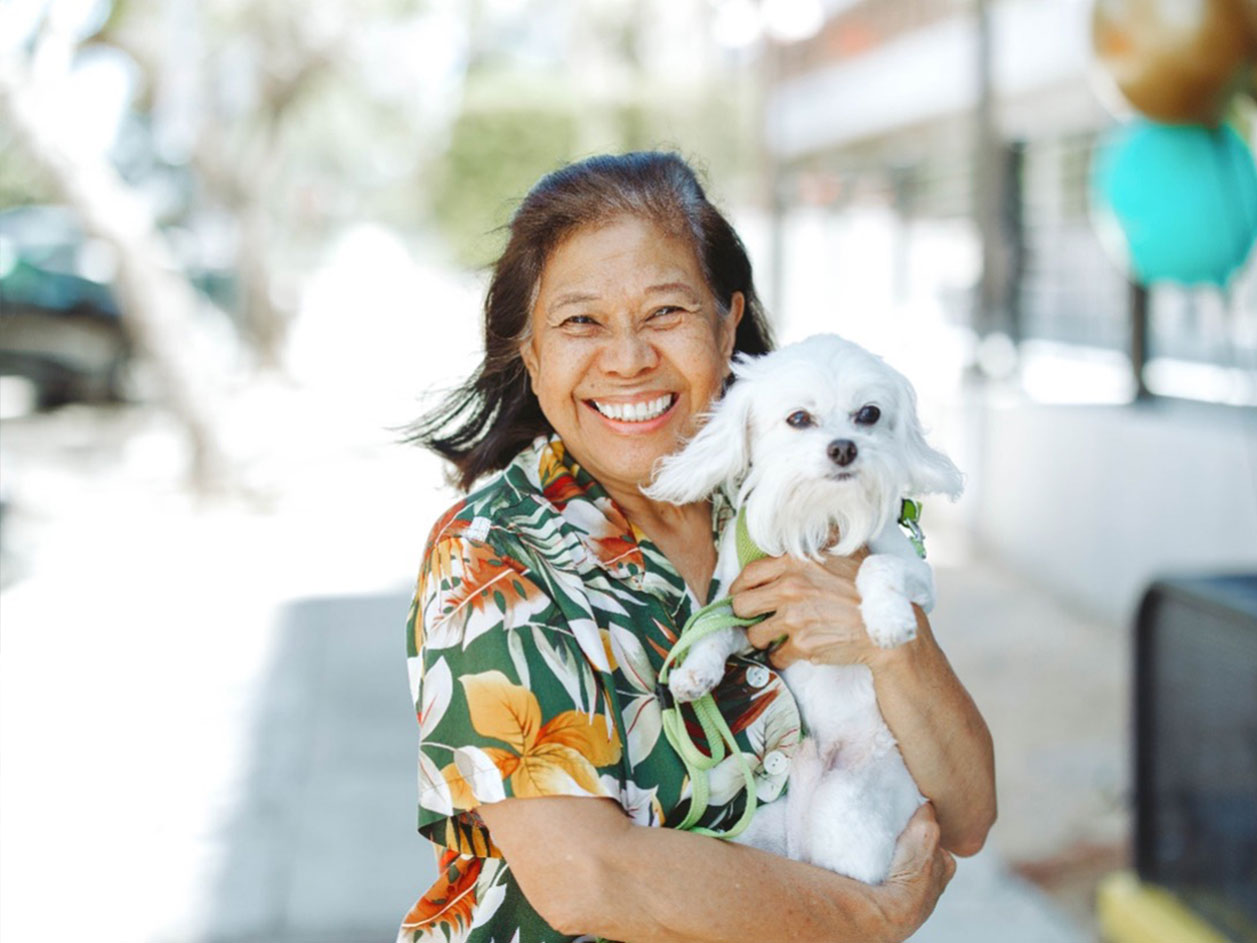
St. Paul’s Senior Services has been caring for San Diego seniors since 1960. St. Paul’s is leading the transformation of the aging experience with innovative programs and support for seniors and caregivers. Photo provided by St. Paul’s Senior Services
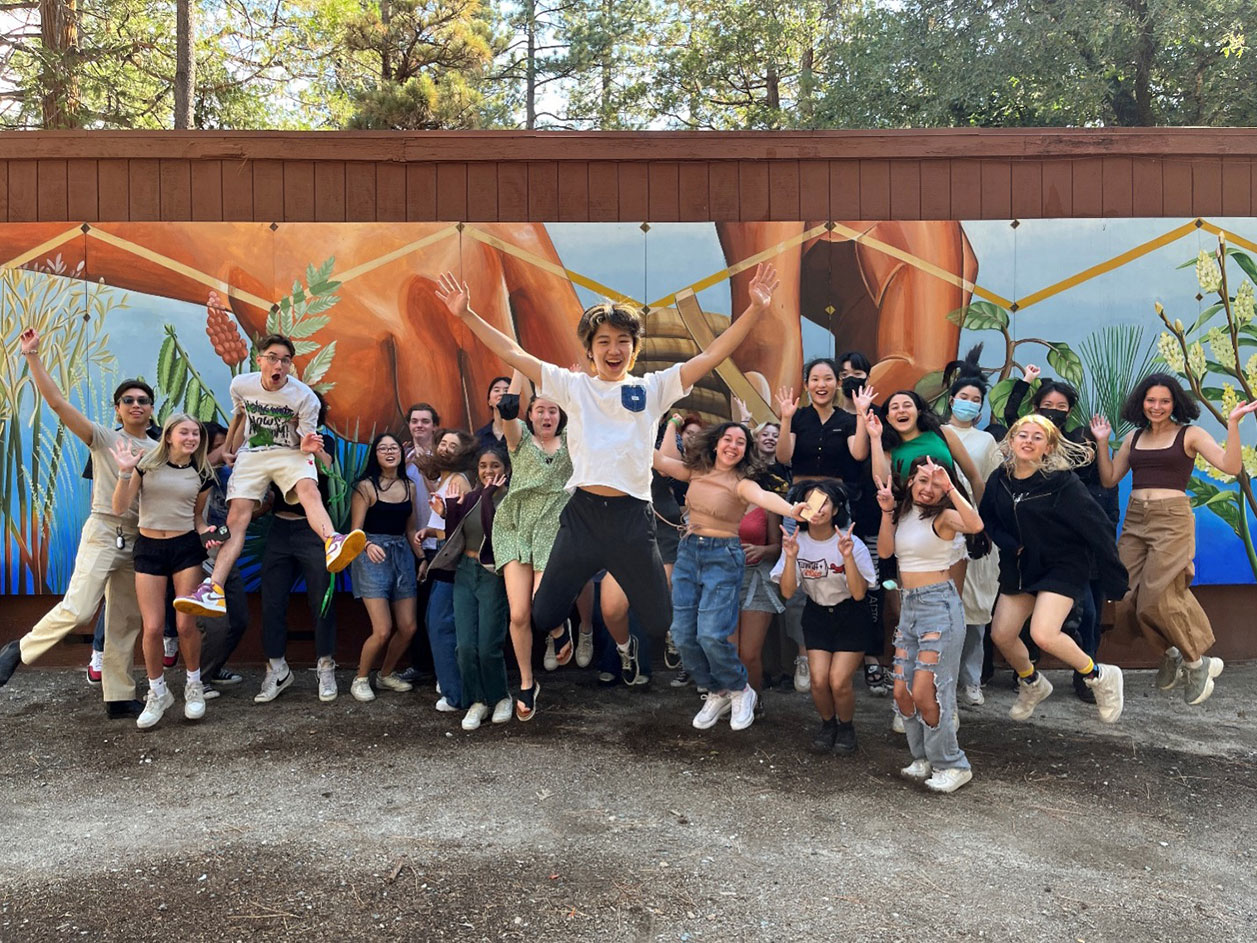
Since 1945, Idyllwild Arts has been dedicated to practical instruction in visual and performing arts: sculpture, painting, photography, ceramics, jewelry, Native American arts, film and digital media, fashion design, dance, music, theatre, and creative writing. Photo provided by Idyllwild Arts
MACP addresses overlooked issues that impact historically underserved Minnesotans through Local Initiatives funding. Our priorities align with the organization’s mission and reflect guidance from Margaret A. Cargill.
We began the year sharing a community listening report created with Marnita’s Table and written by Suzanne Koepplinger. Named “Joy & Healing,” the report assessed the wellness ecosystem in Minnesota and the Twin Cities, and provided recommendations at the sector, professional, and government levels for responding to current challenges to positive mental health outcomes. This work focused on deepening knowledge of community and culturally-based solutions for mental health and wellbeing practices that could be integrated into the many systems supporting communities. We supported grantees who are creating opportunities for community and connection while improving access to clean air for all through the University of Minnesota Climate Adaptation Partnership. Utilizing Community Climate Resilience Hubs, a mobile lab, and a community science project, UMN Climate Adaptation Partnership is bolstering climate resilience and adaptation in overlooked communities across Minnesota.
We continue to engage with communities throughout rural Minnesota and the Twin Cities so that our grantmaking is intentional, responsive, and rooted in our mission and values, reflecting our founder Margaret’s intentions.
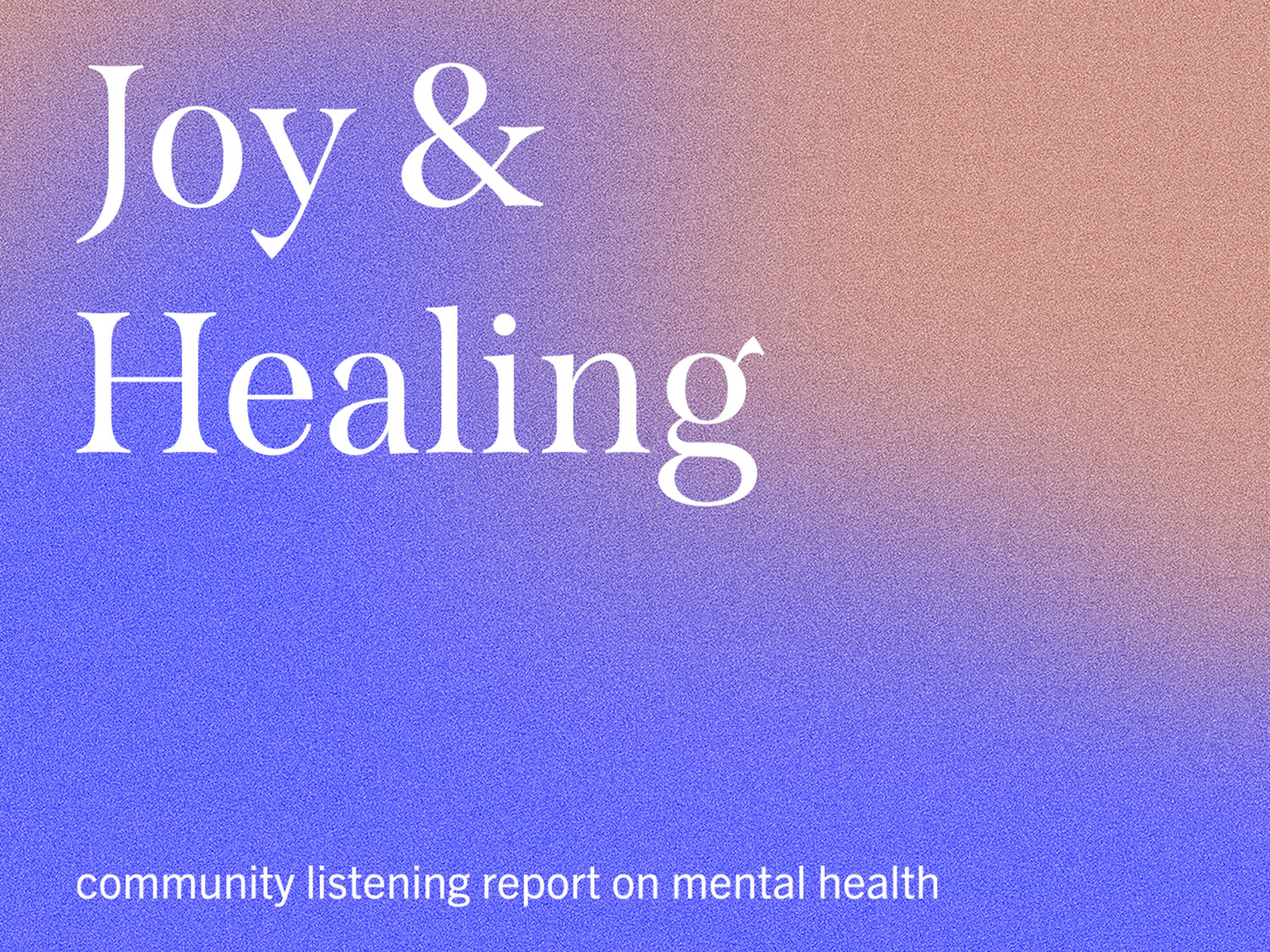
Joy & Healing assesses the wellness ecosystem and captures the need for community-based solutions that increase awareness, access, and availability to mental health and wellbeing initiatives for overlooked communities in Minnesota. Report cover.
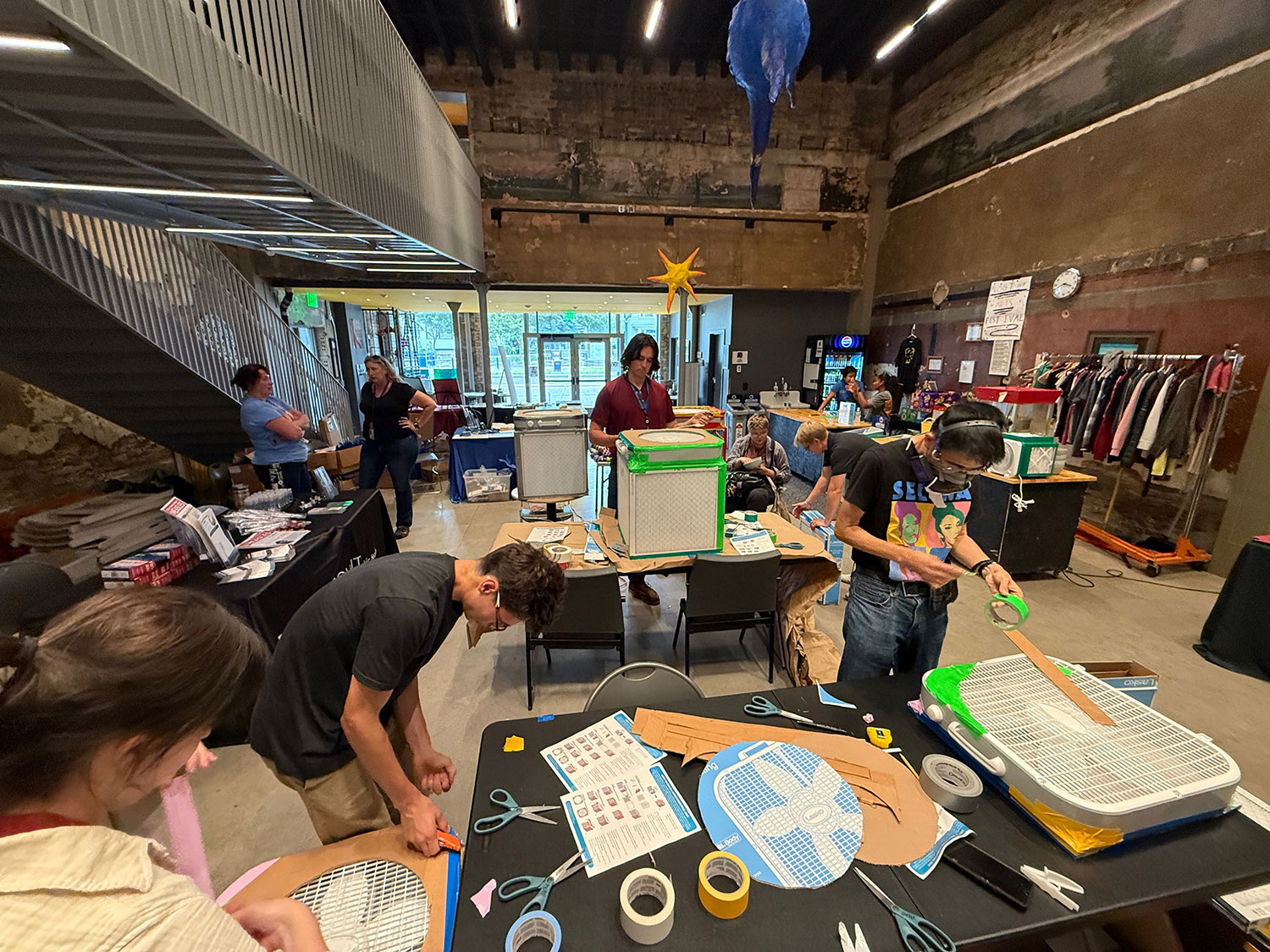
Community members build DIY Corsi-Rosenthal boxes during a preparedness and climate resilience event at 825 Arts. 825 Arts is a community partner organization, based in Saint Paul, in the work to build a network of community Climate Resilience Hubs. Photo courtesy of UMN Climate Adaptation Partnership.
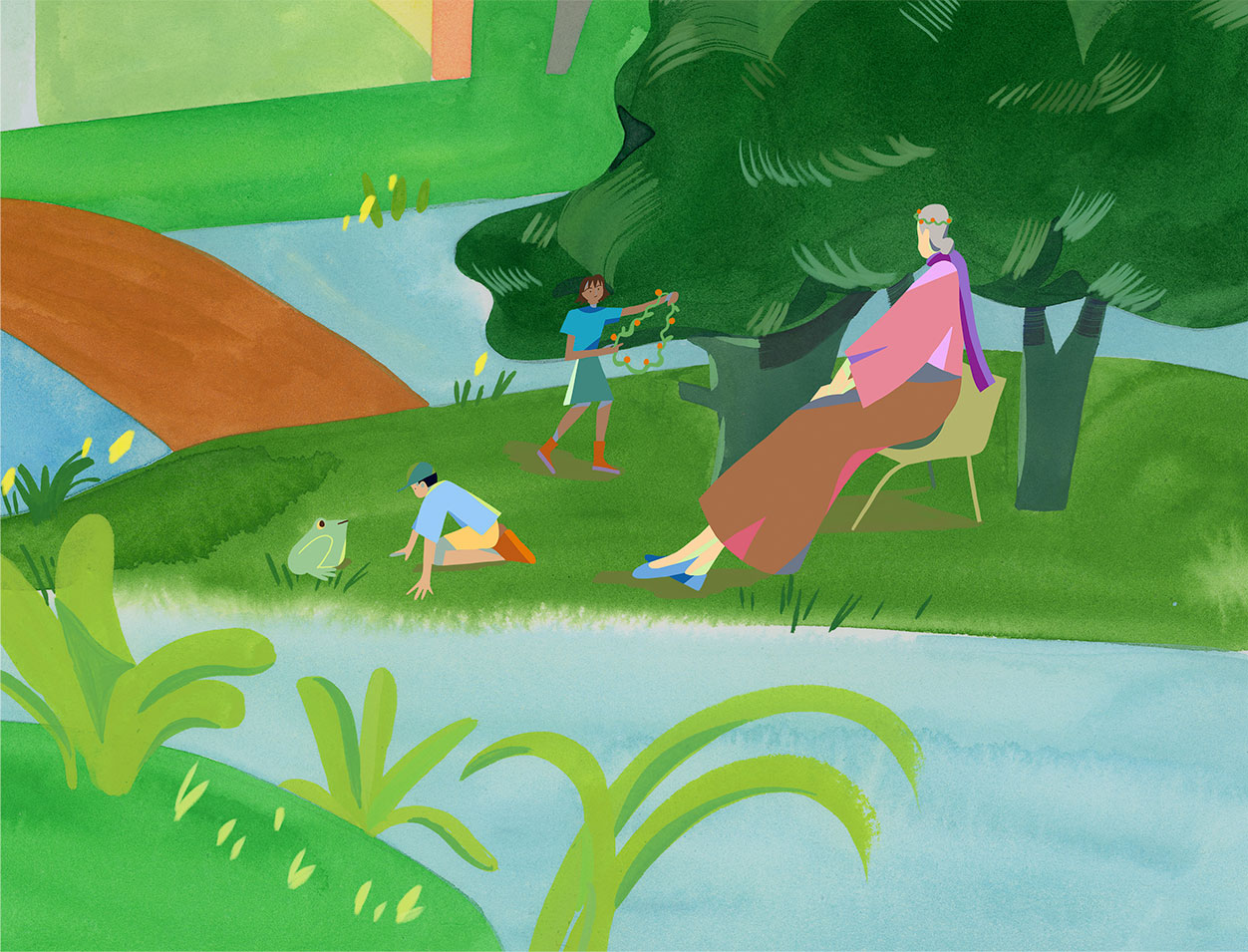
Quality of Life
We support life’s journey at vulnerable stages for children, young adults, families, and older adults.
Our work seeks to remove barriers which prevent children, youth, families, and older adults from improving their quality of life. We support holistic approaches that center the voices of children, youth, families, and older adults that equitably meet the needs of the whole person, whole family, and whole community.
2024 held multiple opportunities for deepening connection and collaboration for programs within the Quality of Life domain. We gathered with our grantees, including the first convening of our Aging program in many years in our space in Eden Prairie, fostering learning through intentional engagement and relationship building.
The International Health program strategy was formalized, which aims to equitably improve survival and wellbeing for women, adolescents, and children through access to high quality, respectful reproductive, maternal, and child health care.
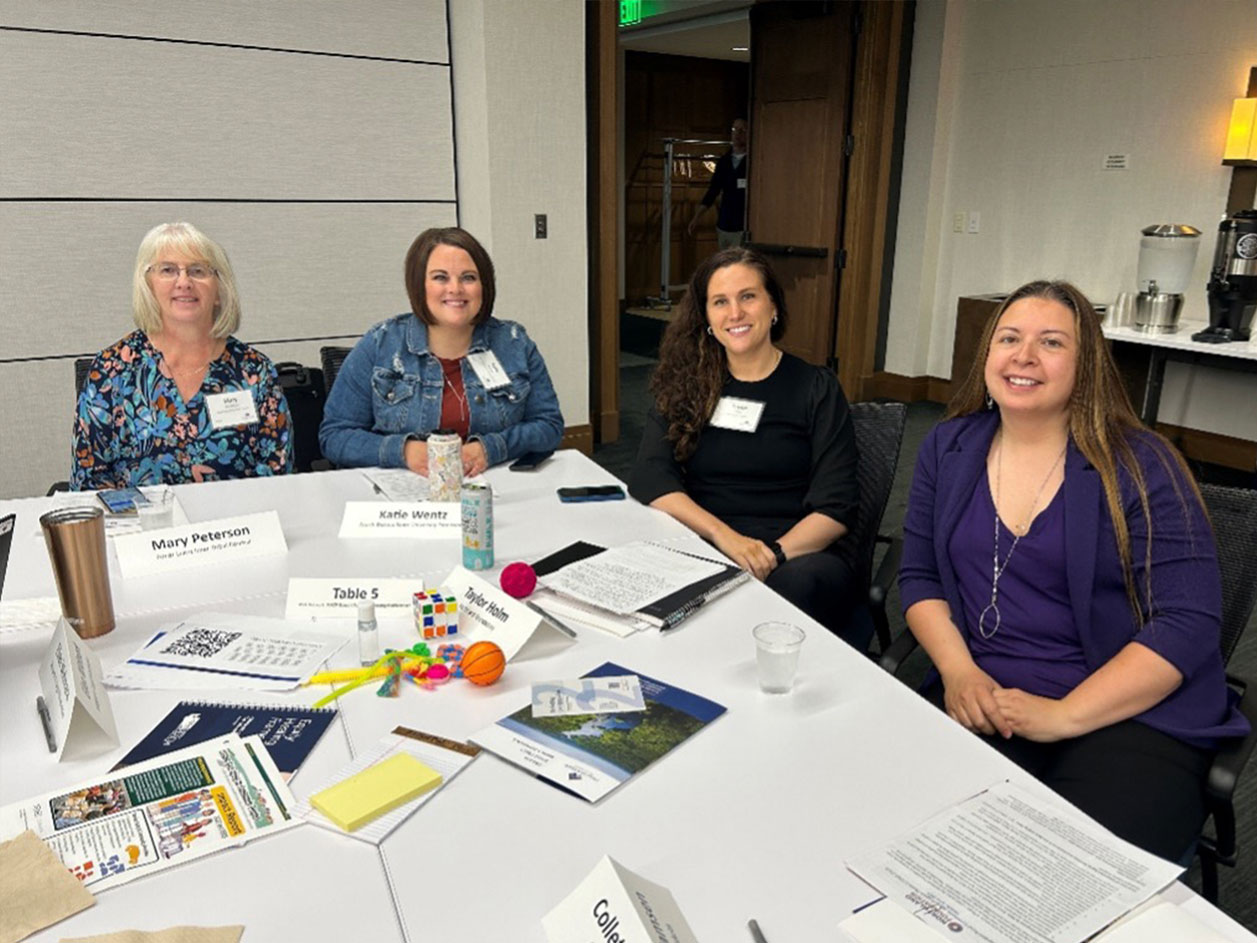
Partners in our Aging program gathered for their first in-person convening in Eden Prairie, MN.

© 2024 YMCA of the USA
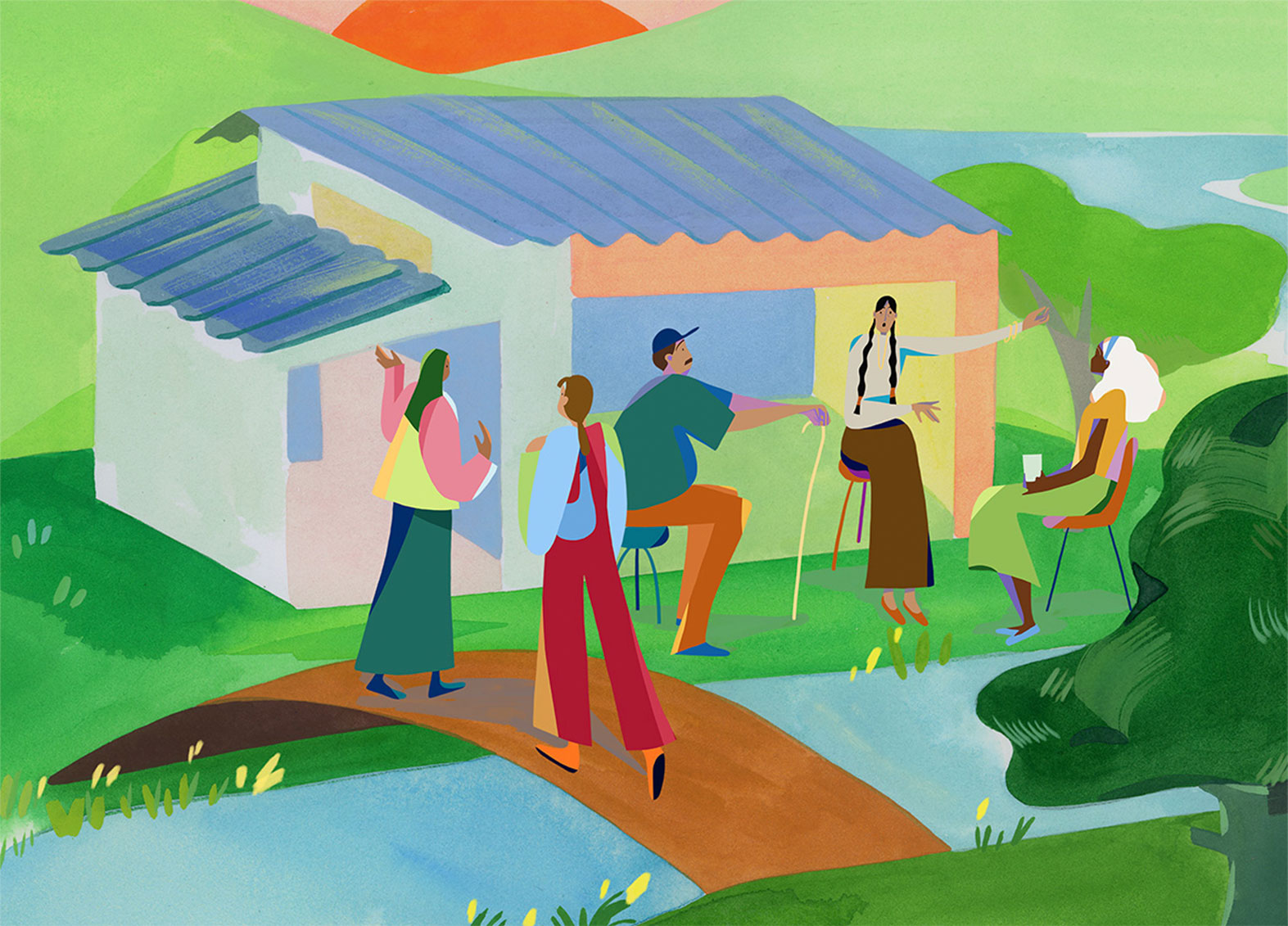
Teachers & Students
We support the teaching profession and student success.
Guided by Margaret’s vision, our grantmaking focuses on increasing the number and diversity of teachers in the profession and supporting teacher retention, as well as increasing success factors for college students from rural and Native American communities. This includes increasing institutional commitment to student success and investing in interventions across key moments of the student experience, with the ultimate aim to improve the retention, attainment, skill development, graduation, and employability of students.
Within the Teachers & Students domain, opportunities for strategic funding and knowledge sharing within the education sector continue to emerge. This includes strategies to strengthen the preparation, development and support of teachers in the profession. And for postsecondary student success, examples of increasing institutional commitment come from Montana State University, Bozeman and its Native Student Services department in their work with first-year Native undergraduate and graduate students to provide services and cultural programming as enrollment of Native students increased.
In Minnesota, Normandale Community College Foundation and the college’s SpedUP and Sirtify programs are attracting more people to the teaching profession and preparing them to thrive in the profession. Together, students and project leads from Normandale presented with MACP staff to education funders and leaders on two innovative teaching pathways that address equity gaps in education.
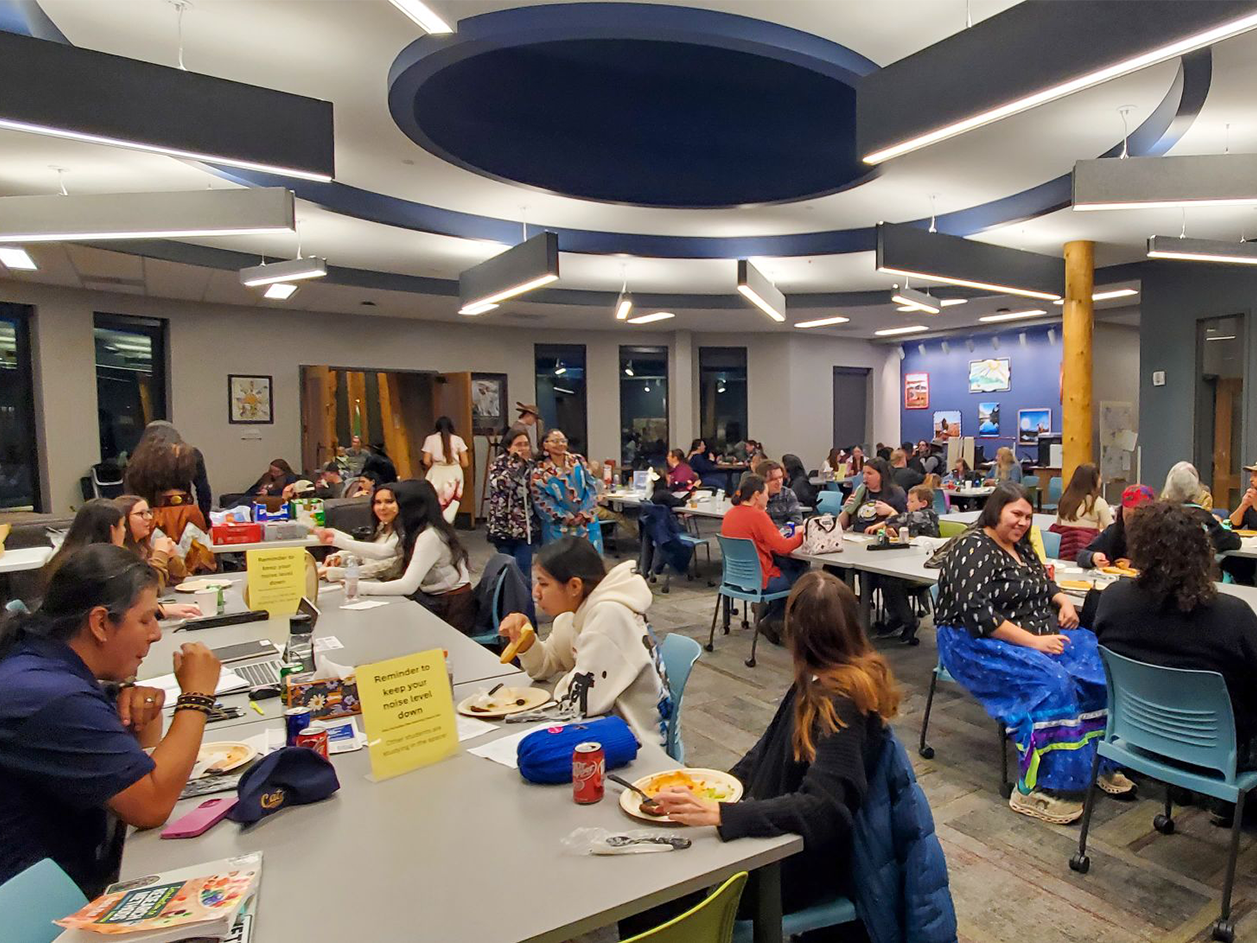
Students and community members gather for Good Relations Learning Community and Building MSU Families programming in the Voyich Student Commons of American Indian Hall at MSU Bozeman. Photo courtesy of Montana State University, Bozeman.
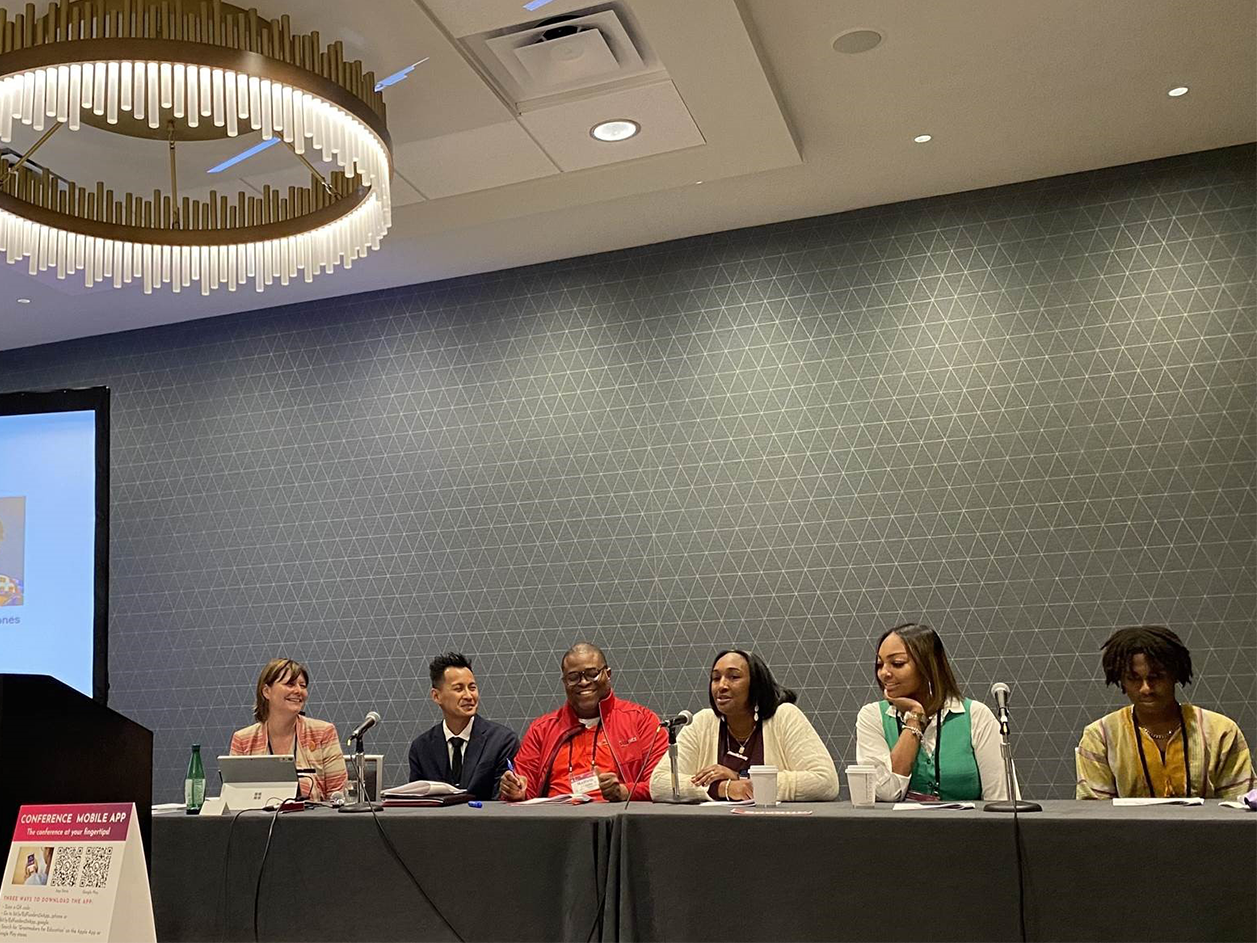
Normandale Community College project leads and students join the Teachers team for a session at the 2024 Grantmakers for Education Annual Conference.
Financials
We paid 392 grants for a total of $313.77 million in 2024. Our relationships with grantees continued to deepen, and we welcomed many new connections.
313.77M
Total Grant Dollars
Paid in 2024
$8.2B
Year-End
MACP Assets
36
Median Duration
(In Months) of 2024
392*
Total Number of
Grants Paid in 2024
76
Countries with Grant
Activity in 2024
*This excludes employee matching gifts and employee service awards.
Over the last several years, we have welcomed new voices to MACP’s governance structures as part of our commitment to engage new and diverse perspectives.
Read More
In 2024, we welcomed two new voices on our Investment Committees, KC Connors, Partner and Chief Consulting Officer at institutional investment consulting group, NEPC, and Leslie Hill-Meier, who recently retired from a 30-year career at Record Financial Group, the last four as CEO. KC and Leslie bring both deep expertise and international perspectives to our governance at the Philanthropies.
A Note About Our Structure:
Margaret A. Cargill Philanthropies is composed of two grantmaking foundations: Margaret A. Cargill Foundation and Anne Ray Foundation. Margaret A. Cargill Foundation is a private foundation that spends at least 5% of its assets on charitable activities over time. Anne Ray Foundation is a supporting organization, which makes grants to organizations named in its formation documents. It spends at least 3.5% of its assets on charitable activities over time.
While our two entities have different governance structures, we share staff, grantmaking strategies, processes, and platforms with the intent to maximize resources available to support charitable activities. In addition, our investment strategies and our charitable spending support our founder’s desire to operate our grantmaking programs in perpetuity, offering permanent sources of funding to the causes she valued.
2024 Grantmaking by Domain

Other
$2,239,000
Legacy & Opportunity,
Local Initiatives
$12,212,000
Arts & Cultures
$27,271,000
Animal Welfare
$12,500,000
Teachers & Students
$30,955,000
Legacy & Opportunity,
Legacy Giving
$43,000,000
Disaster Relief & Recovery
$48,800,000
Environment
$62,450,000
Quality of Life
$74,340,000
The Margaret A. Cargill Philanthropies Team
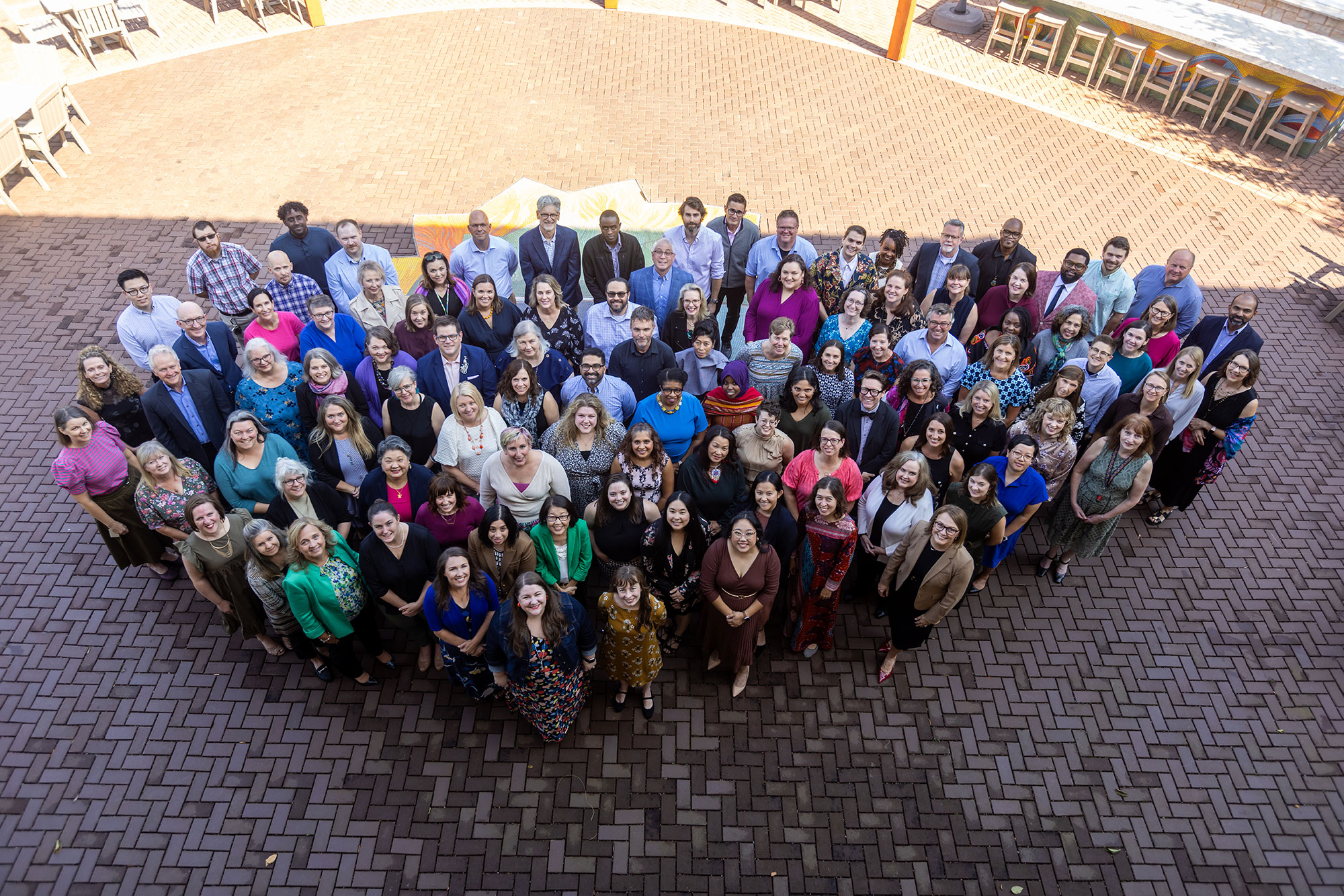
Staff photo by Rebecca Slater.
Art by Ping Zhu © 2025.
Design by Shari Zimmermann.
Development by Hedgemaze.